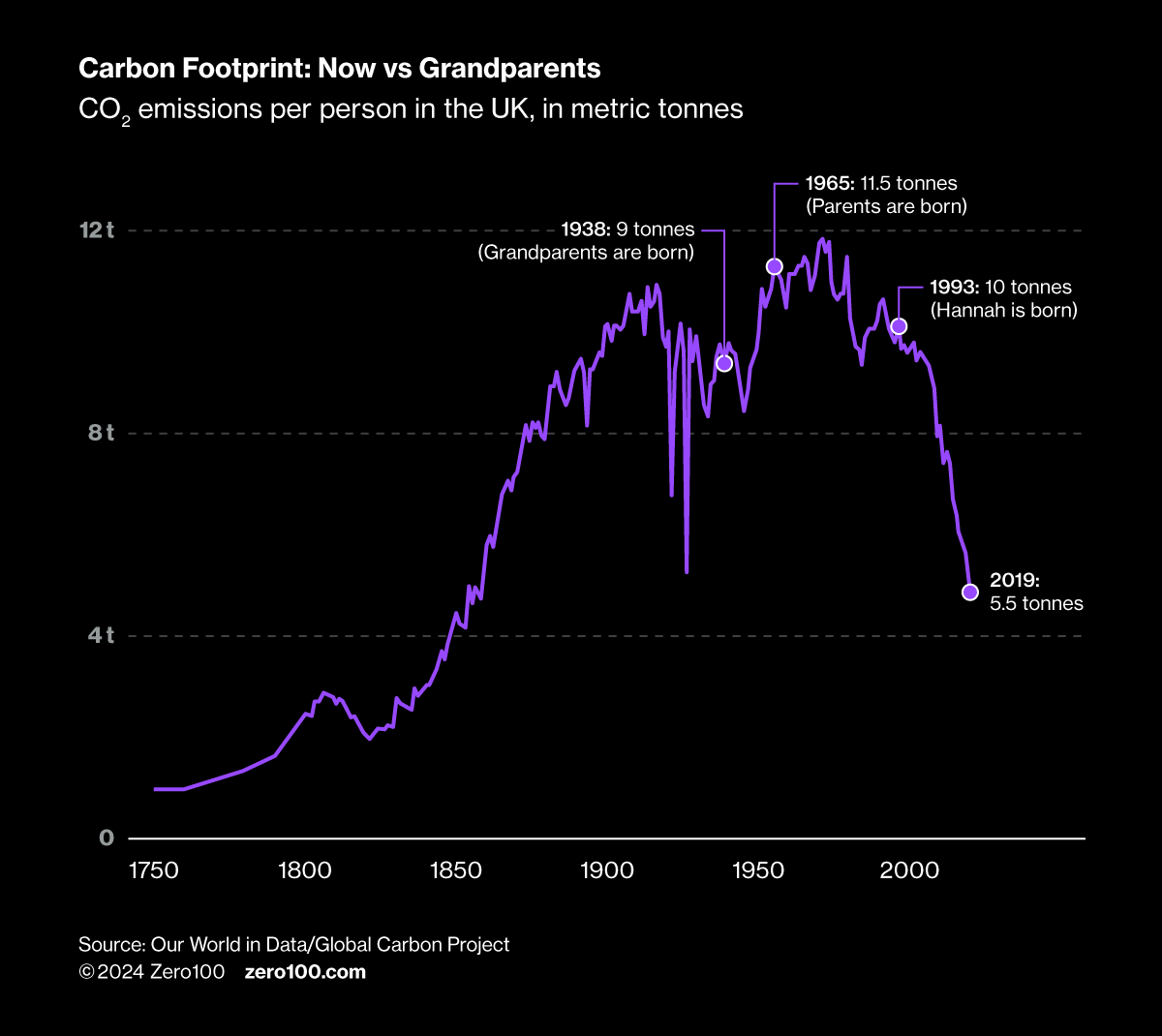
Sustainability Is Dead. Long Live Sustainability
Supply chain technology has the power to move the needle on sustainability efforts and results. As Generative AI allows businesses to do more with less, there also needs to be a change in approach: less hopelessness and more carpe diem.
Hannah Ritchie, a brilliant Scottish data scientist, gave a TED talk last year that flips the sustainability narrative from humanity’s trainwreck to golden opportunity for a new generation. Her data-rich talk on human welfare, carbon emissions, deforestation, and renewable energy deftly lands the message that the world is already well on its way to decoupling GDP growth from greenhouse gas emissions.
Her ask is simple – stop preaching hopelessness and start seizing the opportunity.
Prophets of Doom
Most activists approach our shared sustainability challenge like biblical prophets. Theologian Abraham Heschel described these prophets as “intent on intensifying responsibility… impatient of excuse, contemptuous of pretense and self-pity.” Unyielding, impractical, and zealous enough to do harm while trying to do good, this approach to sustainability may finally be coming to an end.
Ritchie, a PhD geoscientist at Oxford University and Head of Research for Our World in Data, argues that the pre-industrial world some activists pine for would be no paradise. In 1820, 43% of all children died before the age of five. Literacy was only 12%, and 79% lived in extreme poverty. The global population was around 1 billion. Today, we are 8 billion, and 3.8% die before turning five.
Sustainability prophets too often see only the scary future, overlooking the scarier past.
Decoupling Carbon and Economic Growth
Ritchie’s data offers another way forward – seizing technology and innovation to make sustainable cities, transportation, and food that are better and cheaper, arguing that the reason we didn’t do so twenty years ago is that it was simply too expensive. As evidence, she shows that the cost of solar energy has fallen 99.8% since 1970 – and is still falling today. Battery costs have also fallen dramatically – 98% since 1990, which means the $12,000 battery in a typical Tesla today would have cost $1 million in 1990. And deforestation, in fact, peaked in the 1990s thanks to crop yields, which are as much as 600% higher now than in 1930.

Putting a bow around the pitch, Ritchie offers data that shows her carbon footprint today in the UK is about half that of her grandparents despite a much richer lifestyle. The data, which does indeed say that temperatures and total GHG levels are rising, also says that per person, globally, carbon emissions peaked in 2012 at 4.9 tons and have been falling since. Thank China for driving solar costs down, India for scaling an economy that is more IP intensive than the industrial-era United States, and Europe for pushing renewables technology since the 1990s.
There is light at the end of the tunnel. Human progress need not come at the cost of environmental destruction, and supply chain technology is the key.
Speed Saves
Supply chain management is the discipline driving down the costs of renewable energy technologies while driving up crop yields and manufacturing productivity, but this is old news. The new news is how fast we are suddenly learning.
For the first few decades since supply chain management crystallized as a discipline, the pace of improvement was steady but unspectacular. Technology, especially in the siloed era of MRP systems, was not much help. Even with early uses of AI for anomaly detection and predictive analytics, we got better only slowly.

Generative AI has changed things. It is the nature of machine learning and AI to get better as it is used more. In supply chain, where Zero100 has chronicled hundreds of use cases across industries, the effect on sustainability is just starting to be felt as productivity is the new holy grail among businesses working to do more with less.
AI-powered, sustainable supply chain solutions are there, and leaders are rolling them out now. The top ten companies in Zero100’s digital leadership data set are 40% more likely to have set SBTi targets (90% vs 65% in a peer group of 100 B2C companies). Plus, they have been at it for longer (seven years vs six years, on average). They are more than twice as likely to have progress data available on SBTi’s website and nearly 3x more likely to be ahead on their targets.
Sustainable supply chains are the future, and the future is bright.